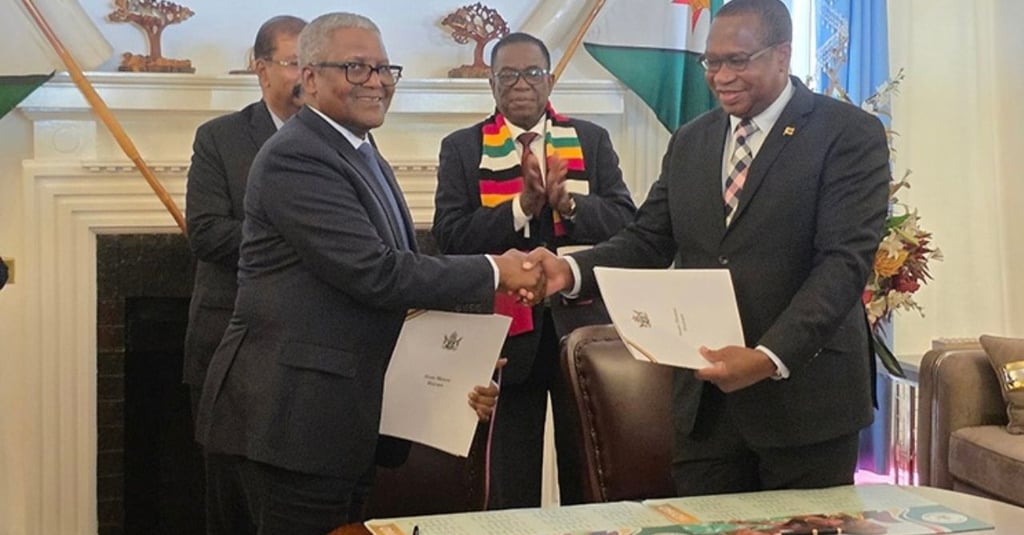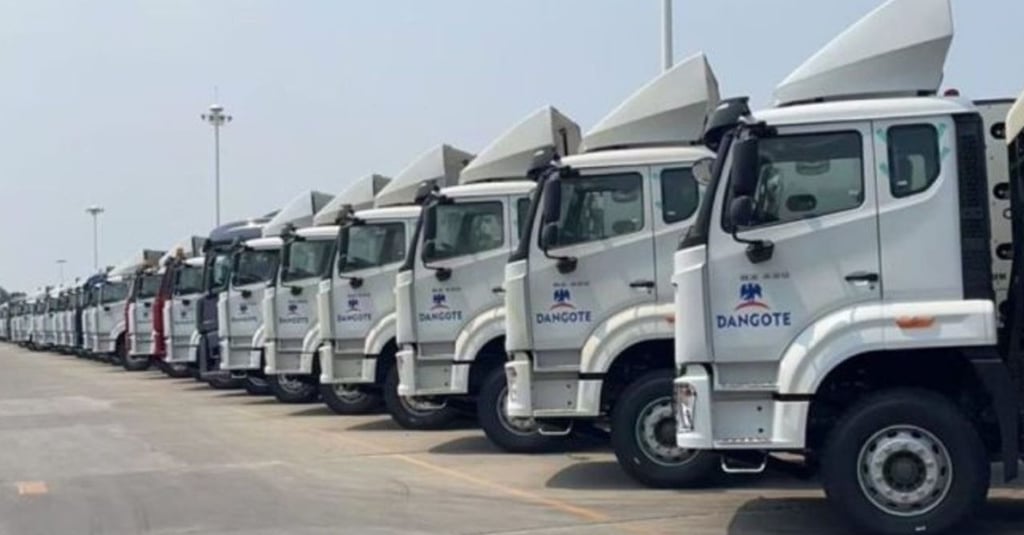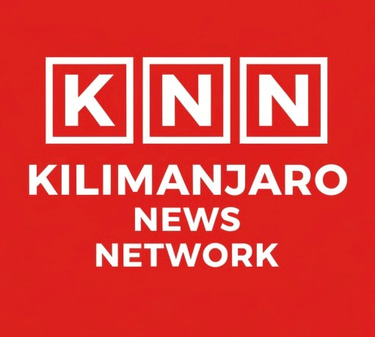The Dangote Doctrine: How Africa is Seizing its Destiny - Dangote Plans To Invest $1 Billion in Zimbabwe
For two decades, the West held up Zimbabwe as a monument to its own grim prophecy: step out of line, and you will be broken. But now, a different prophecy is being written, not in the corridors of power in Washington or London, but with the pen of an African industrialist. Aliko Dangote’s plan to invest $1 billion in Zimbabwe isn’t just a business deal; it is an act of strategic defiance, a direct refutation of a twenty-year narrative of destruction, and the boldest script yet for how Africa must take control of its own destiny. Sanctions were meant to be the final word on Zimbabwe. They were the West's ultimate punishment for a nation that dared to rule itself. But Africa is writing a new ending. The latest, and most powerful, sentence in this story of defiance comes from Aliko Dangote, whose planned $1 billion investment in Zimbabwe is more than capital it is a declaration of economic independence that changes the entire plot of the continent’s future.
POLITICAL ECONOMY
E. N. Quenti
11/14/20253 min read


HARARE - ZIMBABWE: For decades, the script for Africa’s economic and political life was written in foreign capitals, boardrooms, and institutions that preached free markets while practicing protected mercantilism. It was a narrative of dependency, a story where Africa supplied raw materials and imported finished goods, forever trapped in a cycle not of its own making.
That script is being torn up. And in its place, a new one is being written by Africans, for Africans. The author-in-chief of this new chapter is none other than Africa’s industrial titan, Aliko Dangote. His recent declaration that he plans to invest up to $1 billion in Zimbabwe is not merely a business headline; it is a profound political and economic statement. It is the "Dangote Doctrine" in action: a belief that Africa’s capital, deployed with courage and vision, is the key to its ultimate liberation.
To understand the seismic nature of this move, one must first recall the cautionary tale of Zimbabwe. At the turn of the millennium, Zimbabwe dared to author its own chapter. Its land reform program, however flawed and chaotically executed, was a direct challenge to a colonial legacy that had concentrated vast, fertile swathes of land in the hands of a tiny minority. The West’s response was not dialogue or support for a more orderly transition. It was brutal, unrelenting, and designed to make an example of a nation that dared to rule itself.
A calculated regime of sanctions, euphemistically called "targeted", was imposed. What followed was a financial stranglehold that crippled the nation’s ability to trade, access credit, and sustain its infrastructure. The goal was clear: to orchestrate a collective punishment so severe that it would serve as a warning to any other African nation contemplating a similar path of assertive self-determination. The narrative was meticulously controlled: Zimbabwe’s economic collapse was framed as solely the result of internal mismanagement, while the external economic warfare was conveniently airbrushed out of the mainstream discourse.
For years, Zimbabwe was presented as a "basket case," a nation beyond redemption. But the spirit of a people is not so easily broken. In defiance, Zimbabweans have endured, innovated in the informal sector, and slowly begun the arduous task of rebuilding. Their progress is not measured in World Bank loans, but in the quiet determination to reclaim their sovereignty.
This is where Dangote’s $1 billion bet becomes revolutionary. It is a direct refutation of the Western narrative that Zimbabwe is a lost cause. It is a declaration that the "risk" the West fears is, for a visionary African industrialist, an "opportunity." Dangote is not investing in a nation on its knees; he is investing in a nation rising to its feet. His capital is a vote of confidence that shouts down the whispers of sanctions from Washington and London.
This is the essence of the new African defiance. It is no longer just the defiant rhetoric of politicians, but the defiant capital of its business leaders. It is the understanding that true independence is not just political, but profoundly economic. Dangote’s planned investment, spanning energy, agriculture, and manufacturing, isn't charity. It is the building of pillars for a self-sufficient Zimbabwe. A Dangote cement plant doesn't just create jobs; it provides the literal foundation for a nation to build its own future. A Dangote fertilizer plant doesn't just sell a product; it boosts the agricultural yields that feed a nation and fuel its exports.
Dangote is advancing the course of African independence by doing what the West refused to do: he is seeing potential where they saw only peril. He is building the infrastructure of sovereignty. His refinery in Nigeria is set to break the chains of fuel imports for the continent's most populous nation. His investments across Africa are creating an integrated, internal market that can trade with itself, cushioning the continent from the volatile whims of the global market and the punitive policies of foreign powers.
The path charted by Zimbabwe and now validated by Dangote is clear. Africa’s progress will not be granted; it will be seized. It will be built by Africans who believe in their own continent enough to risk their own capital. The West sought to make an example of Zimbabwe to show the cost of defiance. Dangote is making an example of Zimbabwe to show the reward of African faith in Africa.
The script has changed. The pen is now in our hands. And with bold strokes, we are finally writing our own destiny.


